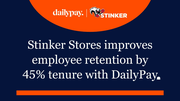Marketing
How to leverage AI-driven tools for more effective retail planning
Here’s why and how retailers should leverage AI tools to improve efficiency and accuracy, streamline retail planning, and ultimately gain a competitive advantage.

February 21, 2025 by Sumit Mahajan — Head of Consulting & Industry Sales, HGS
Effective retail planning is critical to driving successful operations for both digital and in store activities. It ensures businesses can personalize experiences while efficiently meeting customer demands, optimizing inventory, and remain competitive in today's dynamic marketplace.
Yet, the process is complex and can quickly overwhelm retailers due to a variety of priorities from hyper personalization to seamless omnichannel hand offs to creating new exciting moments and connects.
Artificial intelligence continues to drive innovation and improve business processes across industries, and retail is no exception. Here's why and how retailers should leverage AI tools to improve efficiency and accuracy, streamline retail planning, and ultimately gain a competitive advantage.
Why AI-fueled retail planning matters
Retail planning serves as the foundation across all functions of retail operations. Effective planning allows retailers to anticipate and fulfill customer needs, with a direct impact on customer satisfaction and loyalty by ensuring customers have optimal shopping experiences and plan on repeating business.
Whether operating in direct-to-consumer or business-to-consumer models, retailers must focus on CX. Not prioritizing CX can lead retailers to mismanaged inventory or inaccurate forecasting, resulting in lost sales and dissatisfied customers.
With multiple legacy platforms and a lot of planning still built through spreadsheets, traditional retail planning processes can be slow and time-consuming. Retail planning has reached a crossroad, where the demand for personalization and instant gratification is demanding retailers to rethink their approach. By leveraging AI-powered tools, retailers can optimize operations, accelerate decision-making, and unlock actionable insights to meet evolving customer expectations.
Key areas where AI enhances retail planning
Demand forecasting
Accurate demand forecasting is critical to ensure that popular items are always in stock, while simultaneously avoiding overstocking less-desirable products. AI-powered predictive analytics tools use machine learning techniques – such as regression models and neural networks — to analyze historical and real-time data. These tools can identify patterns, predict future demand, and guide retailers on stocking decisions.
For eCommerce, the use of AI helps retailers ensure stockouts or delivery delays are minimized, while for physical stores, it helps maintain shelves stocked with what customers want most.
Inventory management
Managing inventory is a balancing act when it comes to retail planning for both in-store and online spaces. Physical stores must optimize limited space to meet customer demand without holding unnecessary stock, while eCommerce platforms must coordinate across warehouses and fulfillment centers to minimize shipping delays.
To achieve this balance, retailers can leverage AI tools that integrate with IoT devices, RFID tags, or edge AI using computer vision to track inventory in real time, offering an accurate, unified view of stock levels across multiple locations, ensuring products are available where they're needed. AI tools can also send timely alerts to store managers about stock outs, incoming stock, or inform customers when their order is en route, streamlining the entire process.
Pricing and promotions
Dynamic pricing strategies and promotions are key to staying competitive. Planning helps retailers set competitive prices while maintaining profitability for both in-store and online channels. Leveraging deep learning AI-powered platforms helps them do so more efficiently and accurately by providing real-time updates on inventory levels, market demand, and competitive pricing.
During seasonal peaks, deep learning AI systems can suggest optimal discount levels, baking in dozens of internal and external factors including weather demographics, competitor store stock positions, and more, to not only boost sales, but also prevent stockouts. For low-demand products, AI helps identify the right promotions to move inventory efficiently.
Omnichannel integration
Modern consumers expect seamless shopping experiences across channels. AI tools can help facilitate omnichannel integration by synchronizing inventory, pricing, and customer data across channels.
For example, they can support click-and-collect services, ensuring that inventory is accurately tracked across all channels. Additionally, real-time data integration provides a unified view of operations, helping retailers deliver a consistent CX regardless of the shopping medium.
Personalized marketing
AI can improve marketing efforts by analyzing customer behavior and preferences to deliver personalized marketing campaigns to individual customers based on that data. Edge AI enabled personalized tablets on shopping carts for example ensures that customers see relevant offers and messages tailored to their interests while suggesting personalized product recommendations to dynamic ad targeting.
By continuously learning from customer interactions, these systems refine marketing strategies in real-time, boosting engagement and driving sales.
Customer service
AI chatbots and virtual assistants can answer customer queries, guide purchases, and even provide post-sale support in a responsive manner. Additionally, AI-driven sentiment analysis helps retailers address customer concerns proactively, ensuring higher satisfaction rates, allowing the industry to move into a realm of AI assisted personalized concierge service.
Sustainability and waste reduction
By tracking expiration dates and analyzing sales patterns, AI ensures proper stock rotation and timely promotions to sell items nearing their shelf life. This also flags any slow-moving products, allowing retailers to incorporate discounted pricing as needed to help reduce excess stock and ensure profitability.
Lastly, AI can simplify the costly process of managing returns by analyzing return trends and automating decisions about restocking, discounting, or discarding items. It also gives retailers insight into why customers may be returning products, helping them identify potential issues, like unclear product descriptions, and enabling proactive resolution.
Competitive advantage of AI
Retailers that adopt AI-driven tools gain a significant edge in today's competitive market. These systems simplify complex processes, enhance decision-making, and ensure seamless operations by baking in all structured and unstructured data points in a cohesive personalized micro segment improving all aspects of retail planning.
From demand forecasting to customer service, AI helps retailers create a hyper-personalized consumer experience, predict rather than react to customer needs and meet consumer expectations faster and more efficiently than ever before. Embracing these tools is no longer optional—it's a transformative necessity for long-term success.
 ChatGPT
ChatGPT Grok
Grok Perplexity
Perplexity Claude
Claude




